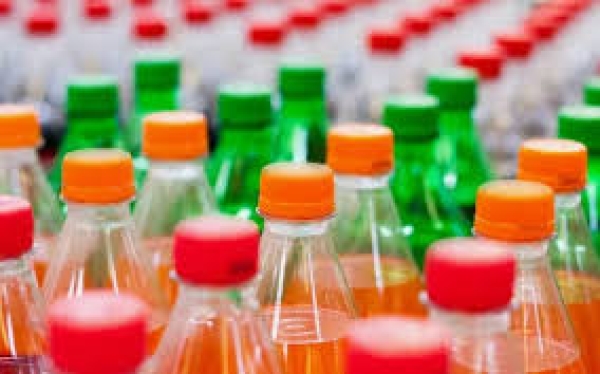A public health expert has raised serious concerns over the increasing health risks posed by the consumption of Sugar-Sweetened Beverages (SSBs) in Nigeria.
The expert warned that the country is facing a growing crisis of obesity, diabetes, and other diet-related diseases.
DAILY POST in an exclusive interview with Abayomi Sarumi, Associate Director at Corporate Accountability and Public Participation Africa (CAPPA), said the widespread intake of sugary drinks commonly called soft drinks is silently fueling a health emergency, especially among young people.
“SSBs are drinks that contain added sugars such as sucrose, high-fructose corn syrup, or other sweeteners like honey and molasses,” Sarumi explained.
“Examples include sodas, fruit drinks, energy drinks, and sports drinks. These drinks are full of sugar and give the body far more energy than it needs.”
According to him, an average bottle of SSB contains nearly 14 cubes of sugar, more than the daily sugar intake recommended by health experts.
“This excess sugar is dangerous to the body. It causes a sudden rise and crash in blood sugar levels, leading to fatigue, mood swings, and over time, serious health problems like heart disease, weight gain, and type 2 diabetes.
“All these outcomes are risk factors for noncommunicable disease (NCDs) which are now responsible for more than 30% of total deaths in Nigeria,” he said.
Sarumi pointed out that SSBs are easily available, aggressively marketed, and often seen as a normal part of daily life.
“They’re ultra-processed and wrongly sold as essential. This marketing has made people believe they are harmless, but that is far from the truth,” he added.
Over 54 Billion Litres of SSBs Consumed in Nigeria
Citing data, Sarumi said Nigeria is now one of the largest consumers of sugary drinks in Africa.
“For more than 4 years, it was reported that Nigeria was the fourth largest consumer of SSBs, with 38 million litres consumed in Nigeria. In April 2025, ahead of convergence of food and beverages companies who now target Nigeria for its young and large population, the organisers informed members of the press that Nigerians consumed over 54 billion litres of SSBs in 2024.
This rise, he noted, is happening alongside an increase in fast food and processed snack consumption, contributing to what he calls “a diet-related disease explosion.”
“We’ve seen more than 150% increase in cardiovascular diseases in the last decade, with over 27.5 million Nigerians living with hypertension as of 2022. And with poor diets, tobacco, and alcohol use, the World Health Organization (WHO) says 22% of Nigerians now face the risk of dying early from non-communicable diseases,” Sarumi warned.
Are Nigerians aware of these dangers?
While some people know sugar can be harmful, Sarumi said most Nigerians don’t fully understand the link between sugary drinks and long-term illnesses.
“From our interactions, many people don’t realise just how dangerous SSBs can be,” he said.
He also described how some myths and misleading advice make things worse.
“There are even cases where patients are told by health workers to take sugary drinks before using medication. In a religious and cultural society like ours, many see diabetes or heart disease as spiritual attacks, not linked to their diet.”
Why SSBs are popular especially among young people?
Sarumi believes the food industry plays a major role in promoting SSBs, especially among the youth. “These products are cheap, everywhere, and heavily advertised. They are shown as symbols of fun, status, or success, without any warning about their dangers,” he said.
“The companies behind SSBs also position themselves as ‘friends of society’ through Corporate Social Responsibility programmes, which makes it harder to question their products,” he added.
The way forward
To reduce consumption, Sarumi supports the implementation of a strong SSB tax. But he says this must go beyond raising revenue.
“A good SSB tax should not only reduce intake but also fund healthcare, especially for people living with diabetes and other diet-related conditions,” he explained. “Government must use the tax money for public health campaigns to educate citizens.”
He also called for other supporting measures like: Clear warning labels on sugary products, limits on how much salt or sugar companies can use, banning celebrities from endorsing SSBs, restricting marketing aimed at children.
“These combined policies will protect Nigerians especially children and help improve the overall health of the country,” Sarumi concluded.
[DailyPost]


